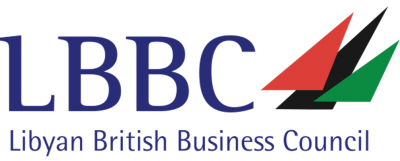What We Do
Meeting people and building the relationships which lead to trade and investment opportunities is a vital part of all business development, but perhaps nowhere more so than in Libya.
Libyans will do business with people they know and trust. Those who are new to the market or unknown to the Libyan decision maker will start behind their better-established competitors.
The LBBC’s key role and activity is geared towards helping our members initiate and develop high-value relationships with the individuals and organisations they need to know in order to win business in Libya.
The LBBC is unique among British trade associations and business consultancies in its experience, expertise and in-country contacts. It is well served by a Board of Directors with extensive experience of doing business in Libya and with Libyans. Uniquely, it has also maintained its commitment to Libya and to the maintenance and development of its networks throughout the difficult times experienced over the last few years.
Membership of the LBBC offers active participation in our programme of events, contact with our network of corporate and political associates, and access to the Council’s collective expertise.
When the LBBC was formed in 2004, one of the founding objectives was to promote long-term UK-Libyan business development through the exchange of information and the encouragement of bilateral discussion between the business and political leadership in Libya and Great Britain.
Between 2004 and 2011, the LBBC introduced hundreds of British business people to the Libyan market and assisted numerous companies and organisations already established in Libya to further their interests there. During that period, the range and quality of our events and member services increased and our membership grew to over 150 Council and Corporate Members.
Since 2011, and especially since 2014, the LBBC has been forced to become more restricted in its in-country activities; and the reduction of commercial opportunities has driven many members to pursue business in other, less troubled, markets.
The LBBC nevertheless retains about seventy members (March 2018) and still attracts new members who recognise that, once stability is restored to Libya, its development requirements and the considerable oil revenues at its disposal will provide significant opportunities for the well-prepared company with an established commitment to the market.
The LBBC continues to keep abreast of developments in Libya, to maintain its contacts there, and to support its members through an active programme of events and services. These services include:
- A programme of regular and annual events, comprising:
- The LBBC Monthly Council Lunches for members to hear from Libyan and British officials, business leaders and other authoritative speakers, such as political and diplomatic experts.
- Periodic sector-specific events involving Libyan visitors to the UK.
- Our Annual Lunch at the House of Lords with distinguished UK and Libyan guest speakers.
- The LBBC Annual trade mission to Tunis (pending a return to Tripoli and Benghazi), chosen because it is the easiest destination for Libyans (who require no visa) to come and meet our delegates.
- Advice, information and introductions for members, particularly those new to Libya.
- Assistance in obtaining visas for members visiting Libya and support for companies seeking UK visas for Libyan business visitors.
- Up-to-date news, information, market intelligence and networking facilities delivered via this website and the LBBC’s online social media pages, as well as marketing and sponsorship opportunities.
In order to fulfil these functions, the LBBC obtains daily privileged reports on events in Libya, from members and other parties with representatives on the ground.
We also maintain close relationships with:
- British government departments, in particular the Foreign and Commonwealth Office and the Department of International Trade (DIT).
- The British Embassy to Libya currently based in Tunis but now making more frequent and longer visits to Tripoli and Benghazi – and supported by a Libyan member of the DIT team permanently resident in Tripoli.
- The Libyan Embassy in London and its staff in the visa section.
- Key Libyan state-owned enterprises, led by the National Oil Corporation (NOC).
- Leading financial institutions including banks, the Libyan Local Investment & Development Fund (LLIDF), the Libyan Post, Telecommunications & Information Technology Holding Company (LPTIC) and well-established Libyan firms with offices in the UK and in Libya.
In Libya, there is pent-up demand for imported products, services, skills and investment, which will offer significant future opportunities to UK firms, their Libyan partners, as well as to our foreign competitors. By acting as an influential and informed advocacy group on behalf of UK business in Libya – in dialogue with the British Government, the Libyan authorities and the private sector there – the LBBC is in an unparalleled position to help our members meet this demand where it can already be accessed and, in due course when the restoration of stability allows, the full resumption of business.
A programme of regular and annual events, comprising:
The LBBC Monthly Council Lunches for members to hear from Libyan and British officials, business leaders and other authoritative speakers, such as political and diplomatic experts.
Periodic sector-specific events involving Libyan visitors to the UK.
Our Annual Lunch at the House of Lords with distinguished UK and Libyan guest speakers.
The LBBC Annual trade mission to Tunis (pending a return to Tripoli and Benghazi), chosen because it is the easiest destination for Libyans (who require no visa) to come and meet our delegates.
Advice, information and introductions for members, particularly those new to Libya.
Assistance in obtaining visas for members visiting Libya and support for companies seeking UK visas for Libyan business visitors.
Up-to-date news, information, market intelligence and networking facilities delivered via this website and the LBBC’s online social media pages, as well as marketing and sponsorship opportunities.

